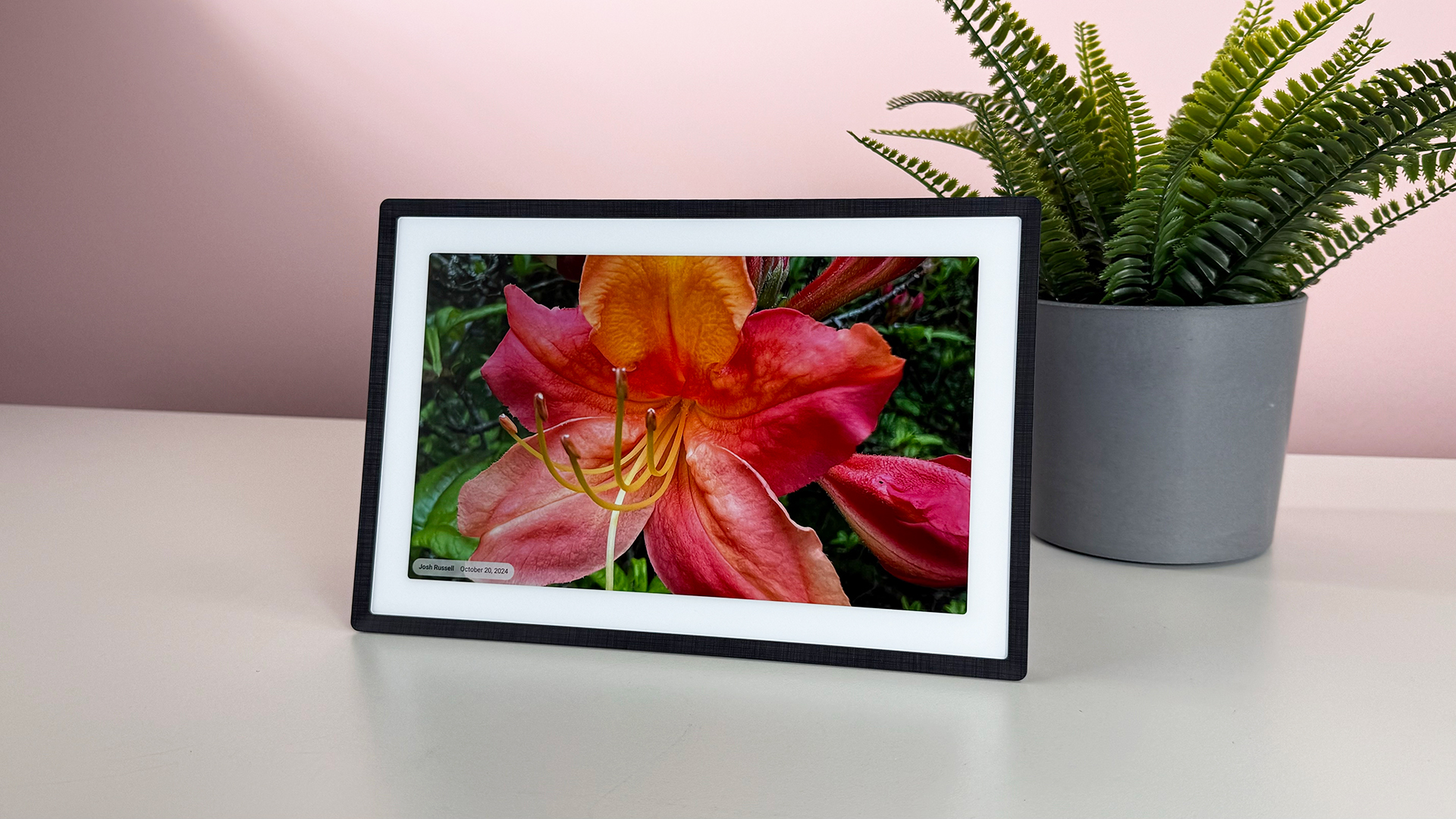
Pexar 11-inch Digital Picture Frame review
The Pexar 11-inch Digital Picture Frame is a true 2K picture frame that arrives at a sweet spot when it comes to cost. With a price tag of $159.99 / £149.99, it remains more affordable than many mid-market and premium frames, while offering pretty decent specs and admirable performance. And since it uses local storage, there are no ongoing subscription costs. In terms of return on investment, then, I’d argue it represents a pretty sweet deal.
Getting started with the Pexar 11-inch Digital Picture Frame is super easy. Once you’ve plugged it in and connected it to your Wi-Fi, you can scan a QR code to download the third-party Frameo app. Then all you need to do is press the 'Add a Friend' button on-screen, type the code that appears into the app and you can start sending images to your heart's content. Naturally, this also allows you to connect friends and family, so they can also add photos to your frame.
For anyone wary of uploading photos of their nearest and dearest to the cloud, there’s some good news here. The Pexar comes with 32GB of built-in storage, which should be plenty; that’s enough to store almost a quarter of my photos and I’ve been snapping them since 2010. Should you want more space, you can easily upgrade the frame’s storage – just add an SD card, USB-A or USB-C stick and you can add up to 1TB.
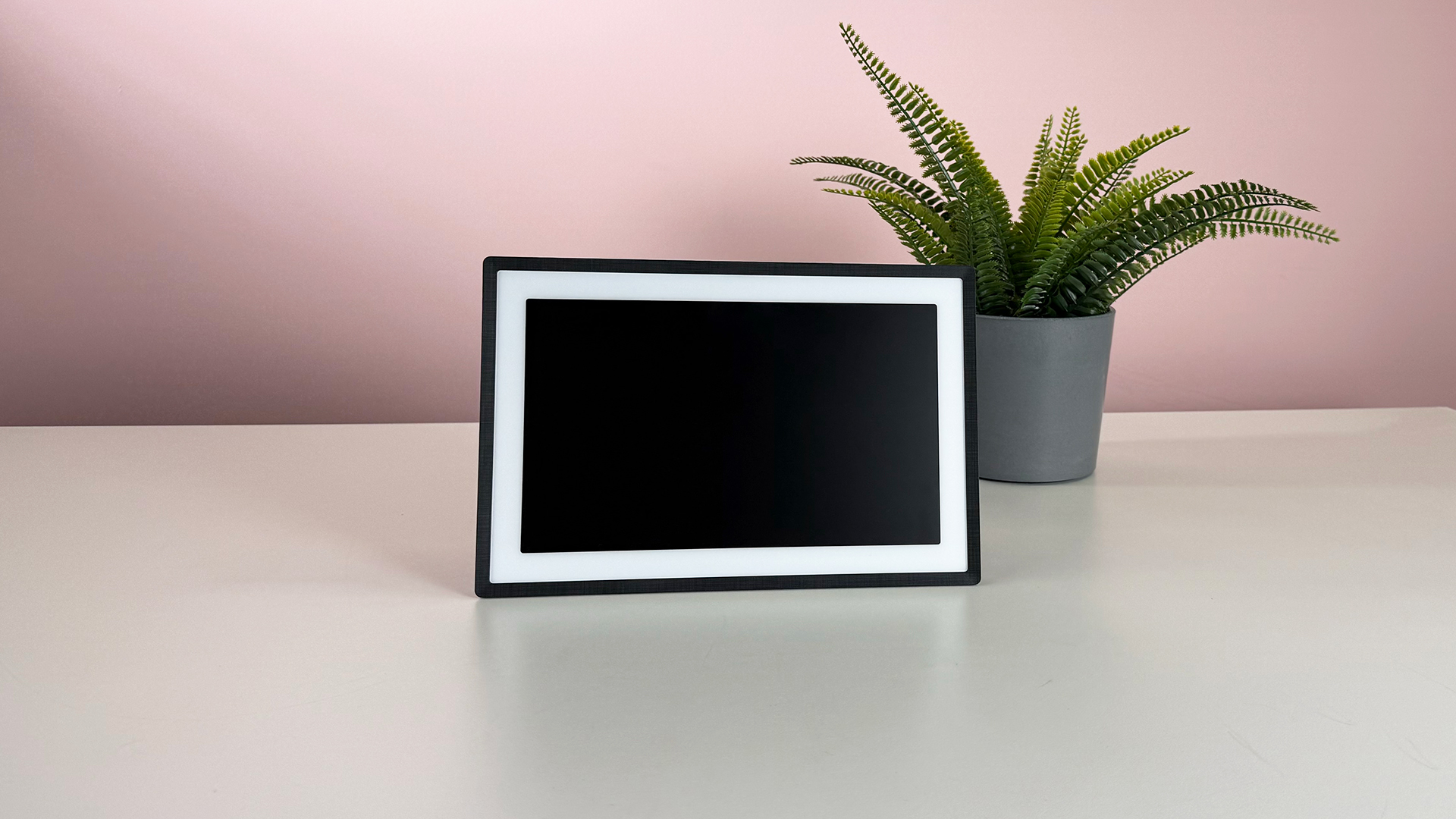
Adding photos is as easy as it is with many of the best digital photo frames, although there are some peculiarities. You can scroll through your whole phone’s image library or each album, either tapping on individual photos or selecting up to 10 at a time – if you want to upload more than this in one go, you’ll have to upgrade to Frameo+ for $1.99 / £0.99 a month or $16.99 / £7.99 a year. You’ll then have a chance to add captions, before selecting a circular focal area the Pexar will ensure remains framed in either portrait or landscape orientation. Note that you can’t resize this focal area, and sometimes it frames things oddly – honestly, I’d rather just have the option to crop each photo manually.
However, once images have been uploaded on the Pexar, they generally look sumptuous. Its 11-inch screen is true 2K, giving it an impressive 212 PPI pixel density that few frames can rival. You could potentially argue the screen is an odd aspect ratio; 5:3 is an unusual ratio for photos compared to 4:3 or 16:9, but I do actually find its slimline portrait and super-wide landscape format pretty striking, even if it does mean losing a little more of my snaps.
For showing off your pictures, the Pexar does an excellent job. Every image displays superb contrast, making my black-and-white photography really pop. Meanwhile, the color profile seems unerringly precise – the ochers and umbers of Fuerteventura’s stark landscape looked suitably brooding, while my close-up shots of rhododendrons at the arboretum were a riot of vivid purples, reds, oranges and yellows. Even by the iPhone’s very exacting color standards, the Pexar didn’t seem to struggle to match what I saw on my phone screen.
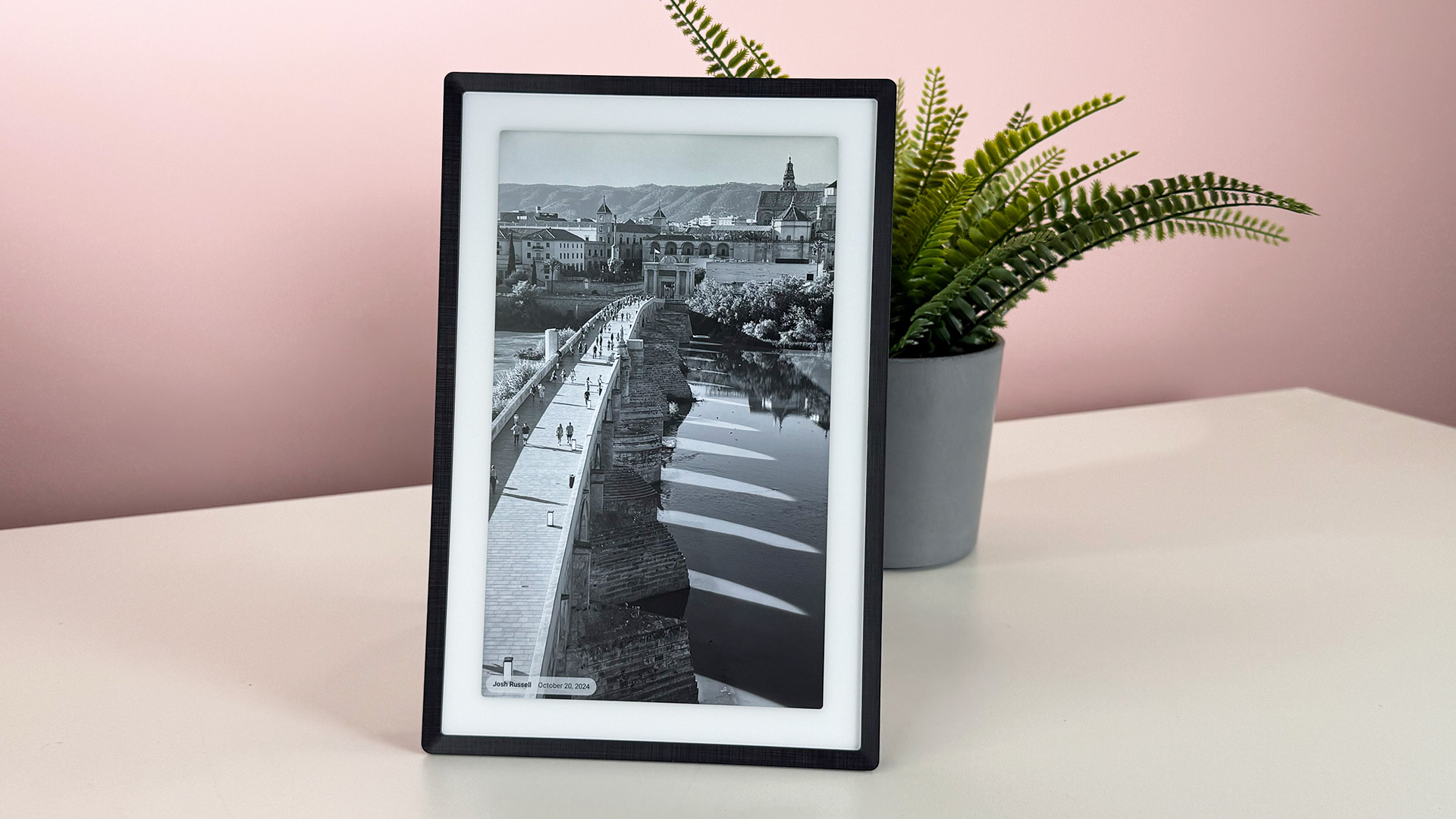
The matte screen also makes images look super-realistic and feels nice to the touch. While it inevitably attracts the odd fingerprint, I can’t say I noticed all that many smears and smudges. Also, the anti-glare feature does a decent job of keeping reflected light from spoiling your snaps – although the British weather meant there wasn’t much direct sunlight during my testing period, so I was able to position the frame facing my large sash windows without it having a significant effect on the viewability of my photos.
You don’t just have to make do with static images, though: you can also share videos with the Pexar – although if you want these to be any longer than 15 seconds, you’ll again need to upgrade to Frameo+. And while I was skeptical about how these would translate to the screen, I was pleasantly surprised; color balance and contrast are solid, even if they don’t quite match the HDR brilliance of my iPhone 13 Pro’s display. Motion definitely isn’t 120Hz, but it’s fluid enough that your videos still look true to life. The only place it lets itself down is sound quality: as with TV screens, there’s been much less investment in the Pexar’s speakers and this is readily apparent. Most of my videos sounded echoey and unpleasant and, personally, I’d be happier just leaving the sound off entirely.
Generally speaking, the auto-rotate feature works well – when stand-mounted, you just pop out the magnetic stand, attach it to the other side of the frame, and place the frame down in its new orientation; images will spin to match. Wall-mounting is easy, too. You can hang it in either orientation using nails or picture hooks, although rotating it won’t be as easy using this mounting option – there’s no swivel mount here.
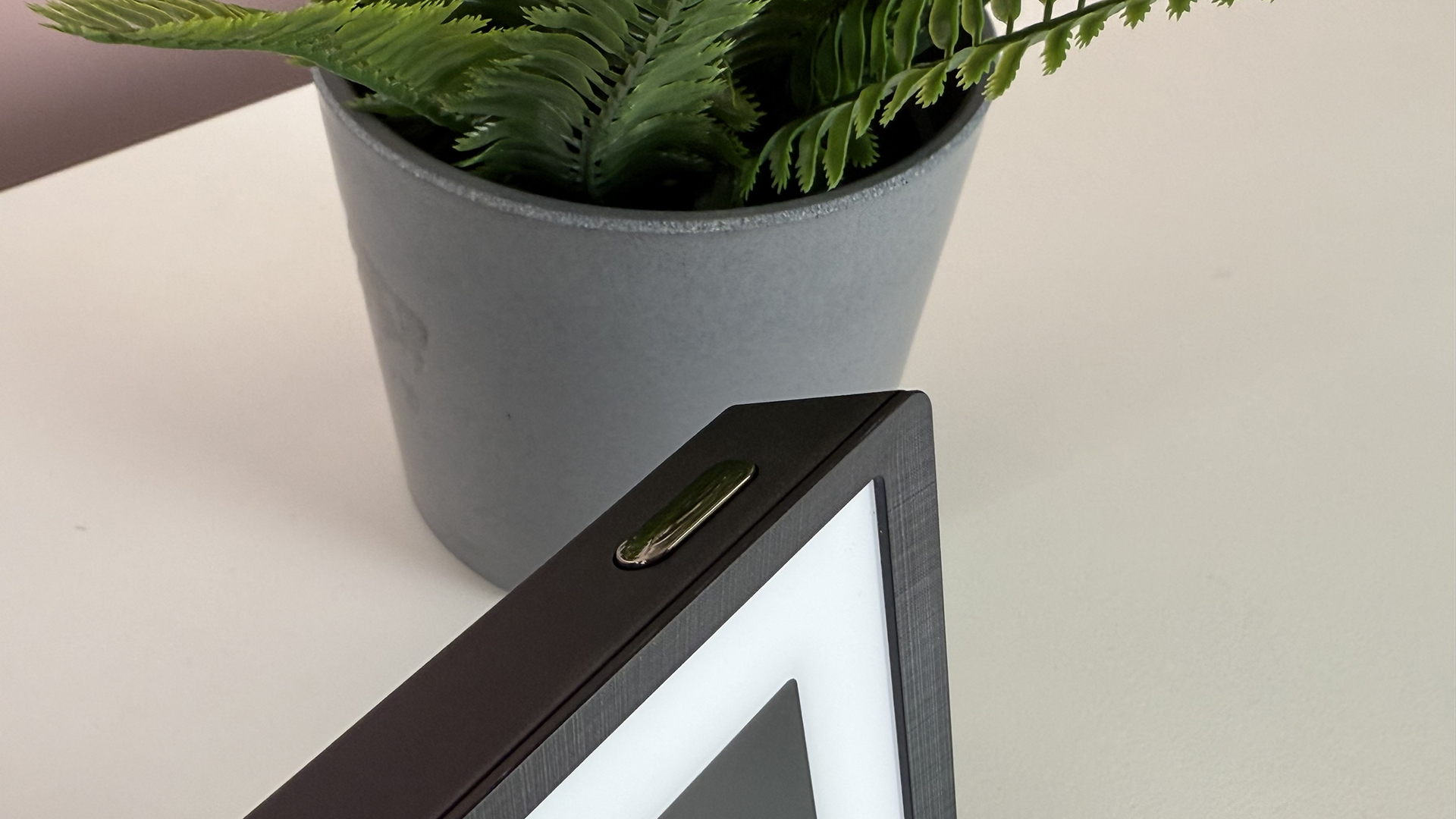
When it comes to the rest of its design, it looks smart. The white bezels around the screen give it a classy vibe and make it feel much more like a real photo frame and mount. Meanwhile, the black frame is nicely understated, purposely doing as little to distract from your photos as possible. Admittedly, I’m not super into the scored, textured effect that’s been applied to it, but you can only really see that very close-up and it does at least improve your grip when you pick it up.
Ultimately, the Pexar 11-inch Digital Picture Frame is a great compromise between picture quality and cost. For its relatively modest $159.99 / £149.99 price, you get a crisp 2K picture, decent color reproduction, and offline storage for added security. There are some limits: uploading a bulk lot of photos using the app will take a long time without a Frameo+ account; the aspect ratio is definitely unusual; and the built-in speakers aren't worth the bother. But that doesn’t change the fact that this digital photo frame offers far more than most others – and even some that cost a fair bit more – at this price.
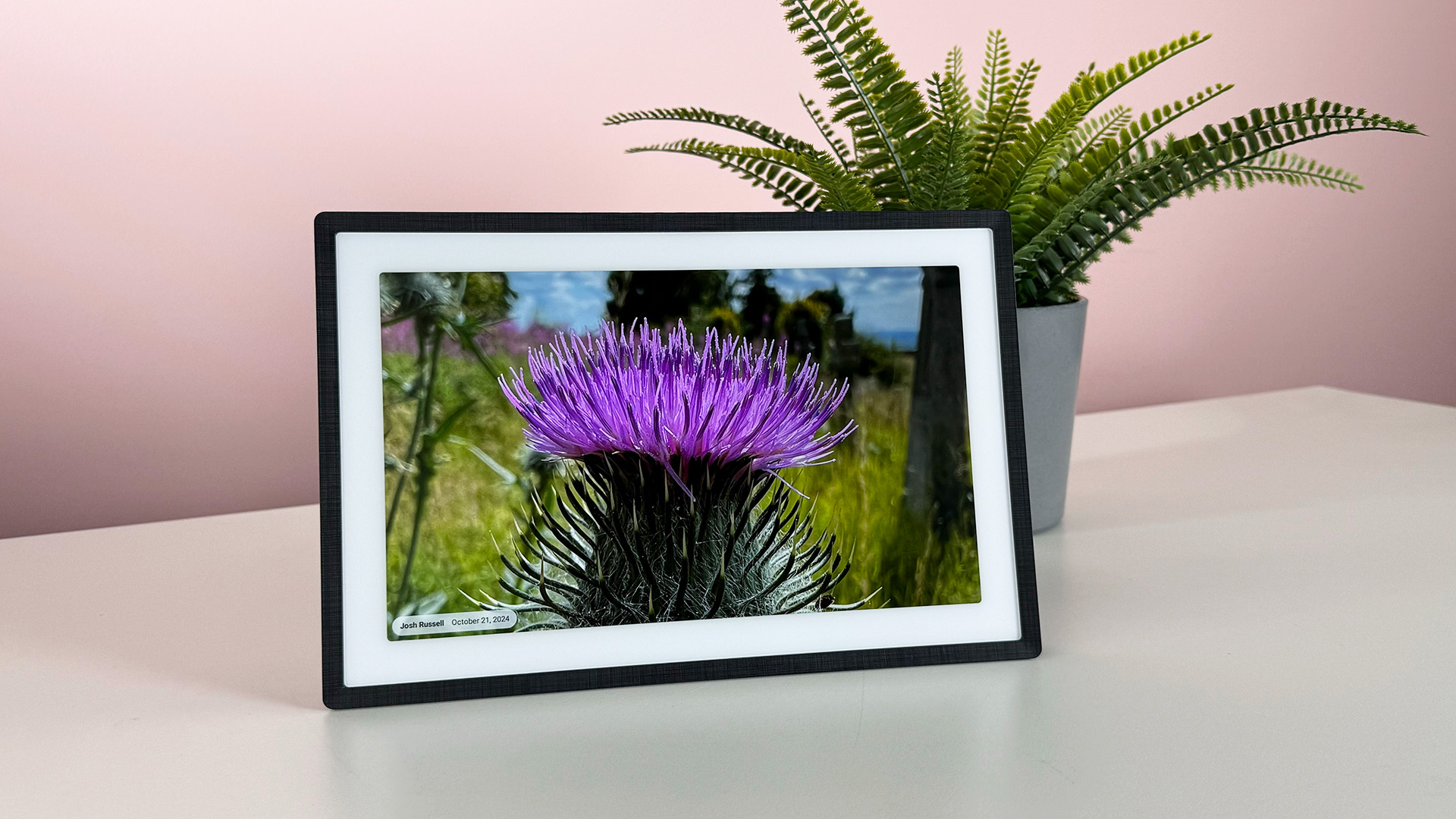
Pexar 11-inch Digital Picture Frame review: price & release date
- $159.99 / £149.99
- Launched in the US and UK September 5, 2024
- Frameo app free or $1.99 / £0.99 a month for Frameo+
The Pexar 11-inch Digital Picture Frame was released on September 5, 2024, and is now available direct from the Pexar store, as well as from major retailers such as Amazon.
Retailing for $159.99 / £149.99, it sits somewhere in the middle of the market – it’s more expensive than cheap and cheerful options such as the 10-inch Aeezo Portrait 01, but it costs half the price of the premium Aura Walden.
One thing that’s worth factoring in is that you don’t need to pay for a cloud subscription to get started with the Pexar: its local storage means you can upload photos using the Frameo app for free. However, you may find you want to upgrade to Frameo+: for $1.99 / £0.99 a month or $16.99 / £7.99 a year, the upgraded tier will allow you to upload 100 photos at a time, rather than 10, and upload videos up to two-minutes long, rather than 15 seconds. It also provides access to cloud backups for your photos and allows you to browse the images sent to your Pexar through the smartphone app.
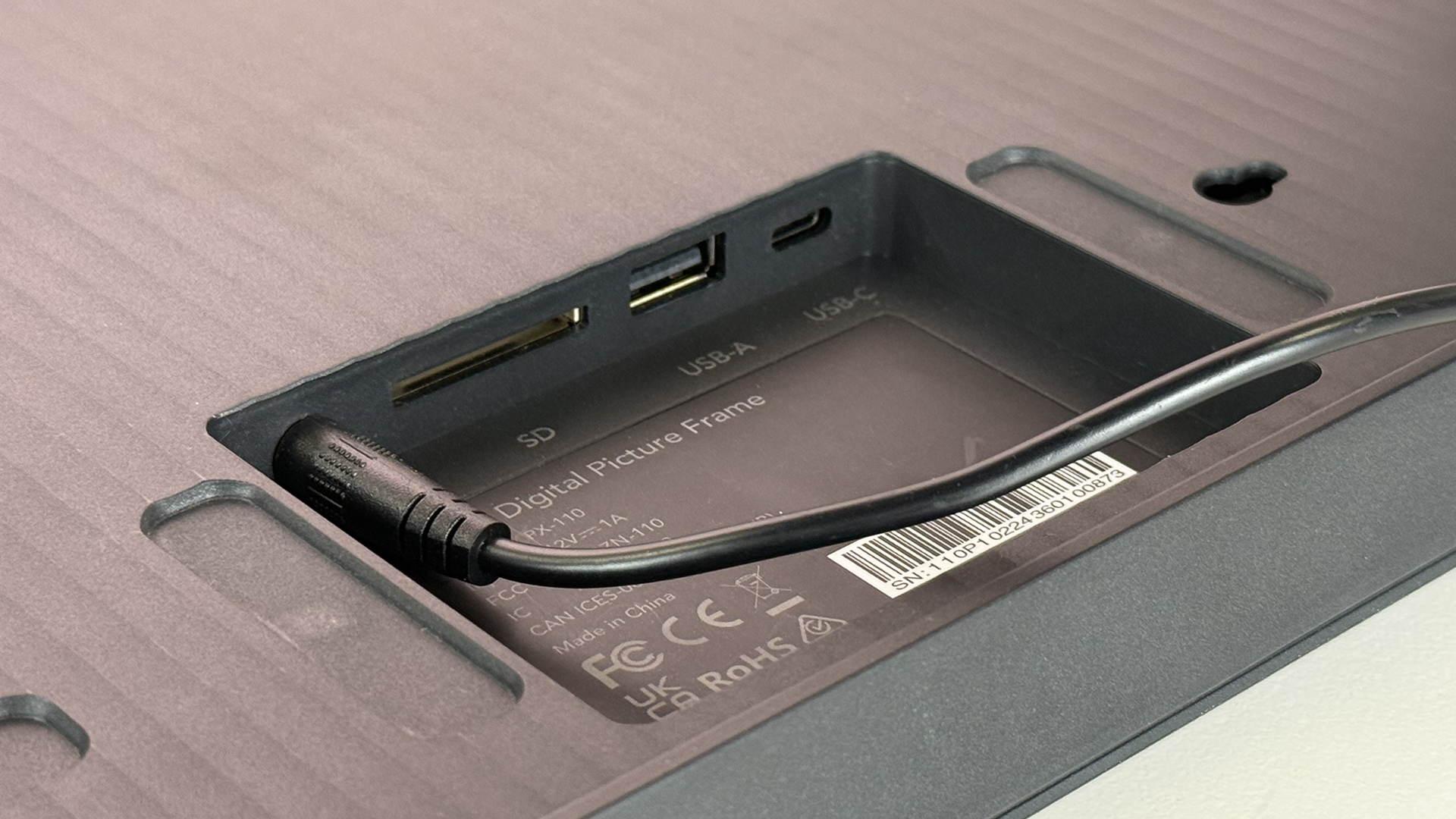
Pexar 11-inch Digital Picture Frame review: specs
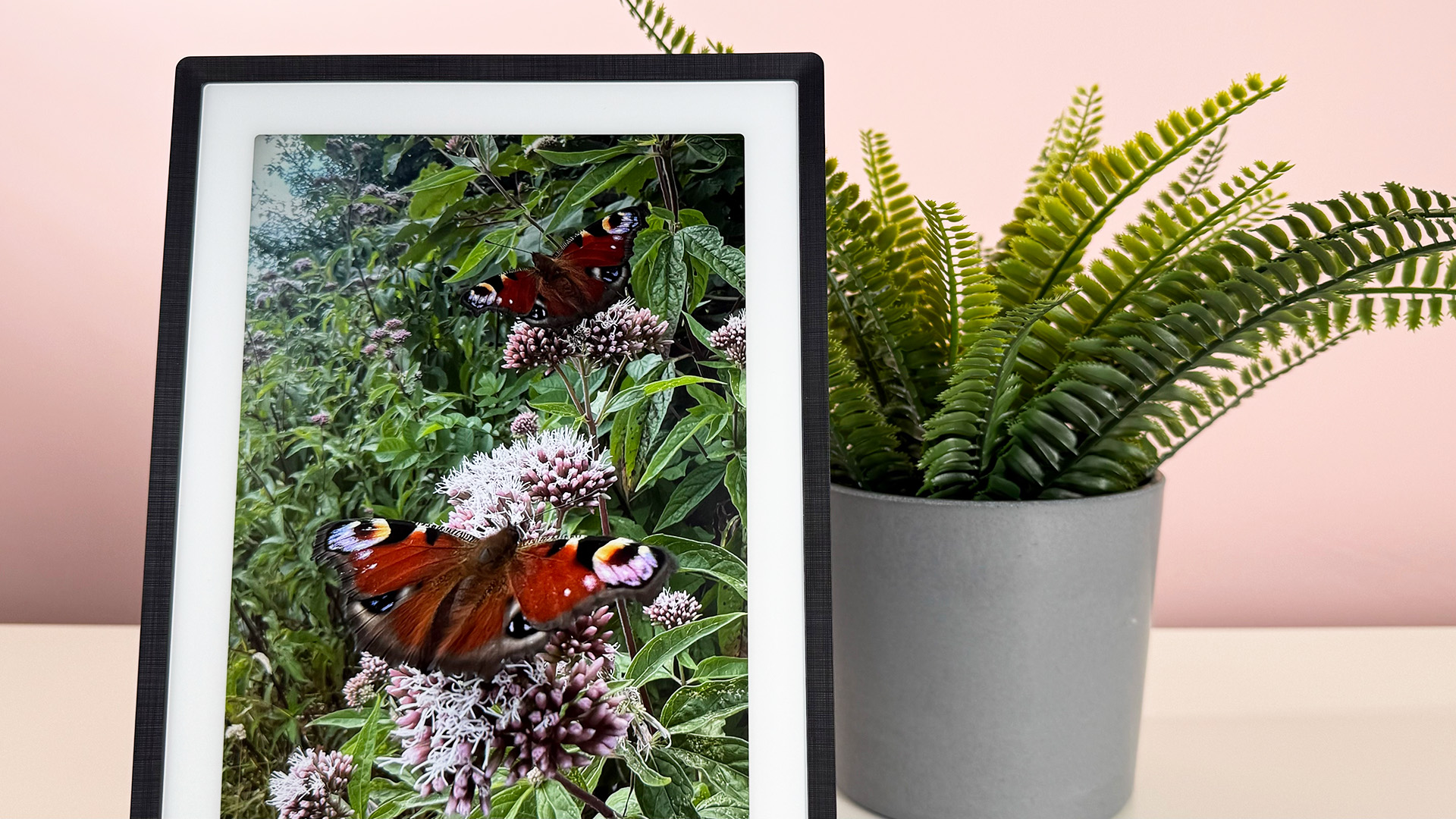
Should I buy the Pexar 11-inch Digital Picture Frame?
Buy it if…
Don’t buy it if…
Pexar 11-inch Digital Picture Frame review: also consider
How I tested the Pexar 11-inch Digital Picture Frame
I tested the Pexar 11-inch Digital Picture Frame over a period of two weeks. I uploaded a variety of photos using the Frameo+ app and set up several other people so they could share photos with the frame as well.
I uploaded a range of images, including portraits and landscapes and everything from brightly colored shots of animals and flowers to black-and-white scenery. I also uploaded a series of videos to assess their resolution and refresh rate. I tried the frame in multiple positions around my home and the TechRadar office and changed its orientation between portrait and landscape.
I’m an experienced photographer, having spent many years shooting both on my Canon DSLR and my iPhone 16 Pro. I’ve taken over 40,000 photos over the years and have spent many years doing post-production on photos and preparing images for print, meaning I have a keen eye for how images should display to look as natural as possible.
- First reviewed: November 2024
- Read more about how we test







